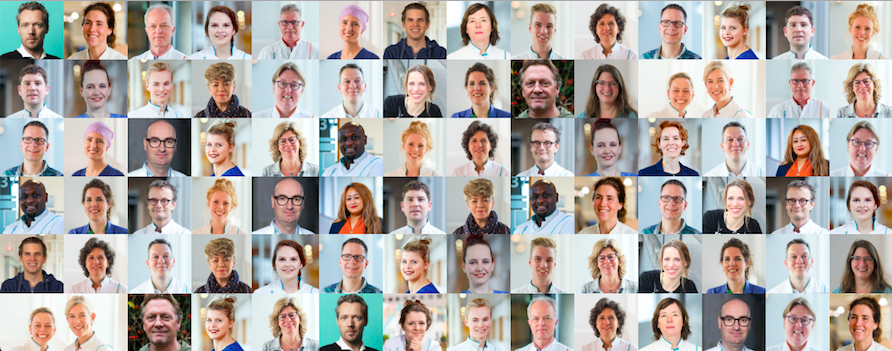Postdoc in cell biology
Postdoc in cell biology
You cannot apply for this job anymore (deadline was 25 Sep 2017).
Browse the current job offers or choose an item in the top navigation above.
Job description
This post is available for a fixed term of four years to undertake research in relation to age-related macular degeneration (AMD). The postdoc will work in a team of four researchers funded by a prestigious VICI grant entitled ‘PRECISE. Precision medicine for age-related macular degeneration: from biomarkers to patient stratification and disease modeling’ that was recently awarded to Prof. Anneke den Hollander by the Netherlands Organisation for Scientific Research (NWO). Specifically, the postdoc will develop precision medicine approaches for AMD by reprogramming and differentiation of induced pluripotent stem cells to eye-specific cell types, combined with organ-on-a-chip technology.
AMD is the most common cause of vision loss in the elderly, and has a huge psychological and social impact on quality of life. No curative treatment has yet been approved that prevents the degenerative process in AMD. Recent work has suggested that several molecular pathways contribute to AMD although it remains unclear to what extent and in what manner these pathways are integrated in the etiology of the disease. For example, our research identified a subgroup of AMD patients that has high activity of the complement system in serum. Such patients are expected to respond better to complement inhibitors that are currently in the clinical trial phase than patients in which other molecular pathways are affected and in which the complement system may play a lesser role. Other subgroups of patients may benefit from different treatments, targeting other molecular pathways. In the VICI project of Prof. Anneke den Hollander, genetic, serum and imaging biomarkers will be identified using innovative omics technologies and imaging software (carried out by a PhD student in molecular biology, other vacancy). AMD patients will then be stratified into subgroups based on these genetic, serum and imaging biomarkers (carried out by a PhD student in bioinformatics, other vacancy).
Finally, a new 3D organ-on-a-chip for these AMD subgroups will be developed to characterize the disease mechanisms and to test the effect of therapeutic compounds in these subgroups (carried out by a postdoc [this vacancy] and a technician [other vacancy]).
Specifications
- max. 36 hours per week
- Nijmegen View on Google Maps
Requirements
- PhD degree in cell biology;
- Preferably experience in iPS cell reprogramming and differentiation and/or organ-on-a-chip technology;
- Excellent track record demonstrated by high-impact publications;
- Enthusiasm and strong ambition to succeed in academic research;
- Highly motivated to work in an interdisciplinary environment at the cutting edge of science;
- Excellent interpersonal and communication skills are essential, as is a willingness to work flexibly.
Conditions of employment
Fixed-term contract: Employment will initially be for one year, and can be extended with an additional 3 years.
Scale 10: max. € 57947 gross income per year at full employment (incl. vacation bonus and end of year payments)
Employer
Radboudumc (university medical center)
Radboudumc strives to be a leading developer of sustainable, innovative and affordable healthcare to improve the health and wellbeing of people and society in the Netherlands and beyond. This is the core of our mission: To have a significant impact on healthcare. To get a better picture of what this entails, check out our strategy film.
Our key strength is medical life-sciences and clinical practice, with an impressive infrastructure comprising state-of-the-art technology platforms and (translational) research facilities. The Radboudumc is therefore uniquely positioned in the emerging Euregio and Dutch healthcare infrastructure to play a leading role in the new healthcare paradigm of prediction, prevention and personalised medicine.
The Radboudumc focuses on scientific health challenges of today, with an eye on emerging diseases of the future.
Read more about what it means to work at Radboudumc and how you can do your part.
Department
Ophthalmology and Human Genetics
The research project will be based at the Departments of Ophthalmology and Human Genetics, and will be performed in close collaboration with Twente University for the organ-on-a-chip technology. The research group is embedded in the Donders Institute for Brain, Cognition and Behaviour of the Radboud University Medical Center. We provide a stimulating work environment within a group of enthusiastic clinical and non-clinical researchers with a strong national and international research network.
The Departments of Ophthalmology and Human Genetics house a range of top researchers in the areas of ophthalmology, genetics, bioinformatics and stem cell research. Both departments have a strong track record, with recent publications in high-impact journals (Nature, Nature Genetics, Ophthalmology, JAMA Ophthalmology). The combined infrastructure is state-of-the-art including innovative genetic technologies (Next-Generation Sequencing, bioinformatics core), omics technologies for biomarker discovery (Radboudumc Technology Center for mass spectrometry), reprogramming and differentiation of induced pluripotent stem cells (Radboudumc Technology Center for stem cells) and a wide range of functional assays and model systems.
Specifications
- Postdoc
- Natural sciences; Health
- max. 36 hours per week
- Doctorate
:fill(white)/logos/umcr-en-wide.png)
